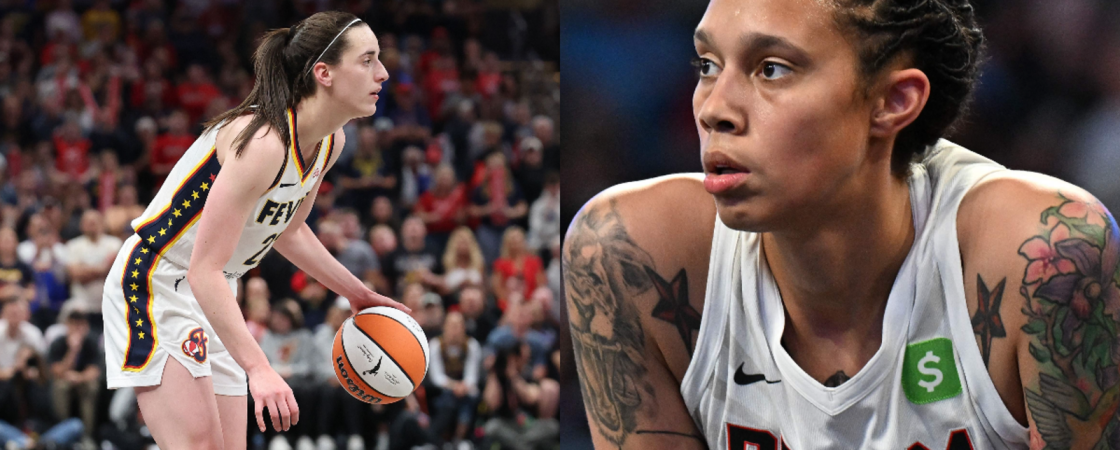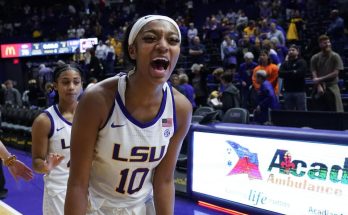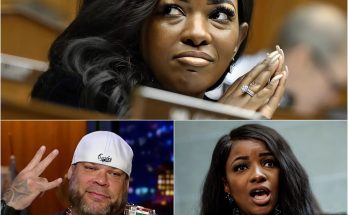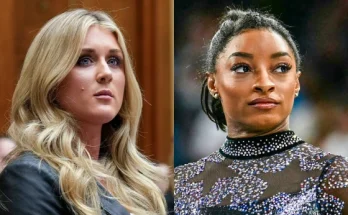The WNBA is facing one of its biggest public relations crises in recent memory after a heated incident involving Brittney Griner and rookie sensation Caitlin Clark sparked outrage among fans and political commentators alike. Allegations that Griner used a racial slur against Clark during a May 23rd game have ignited a firestorm, and the league’s conspicuous silence in the aftermath is raising more questions than answers.
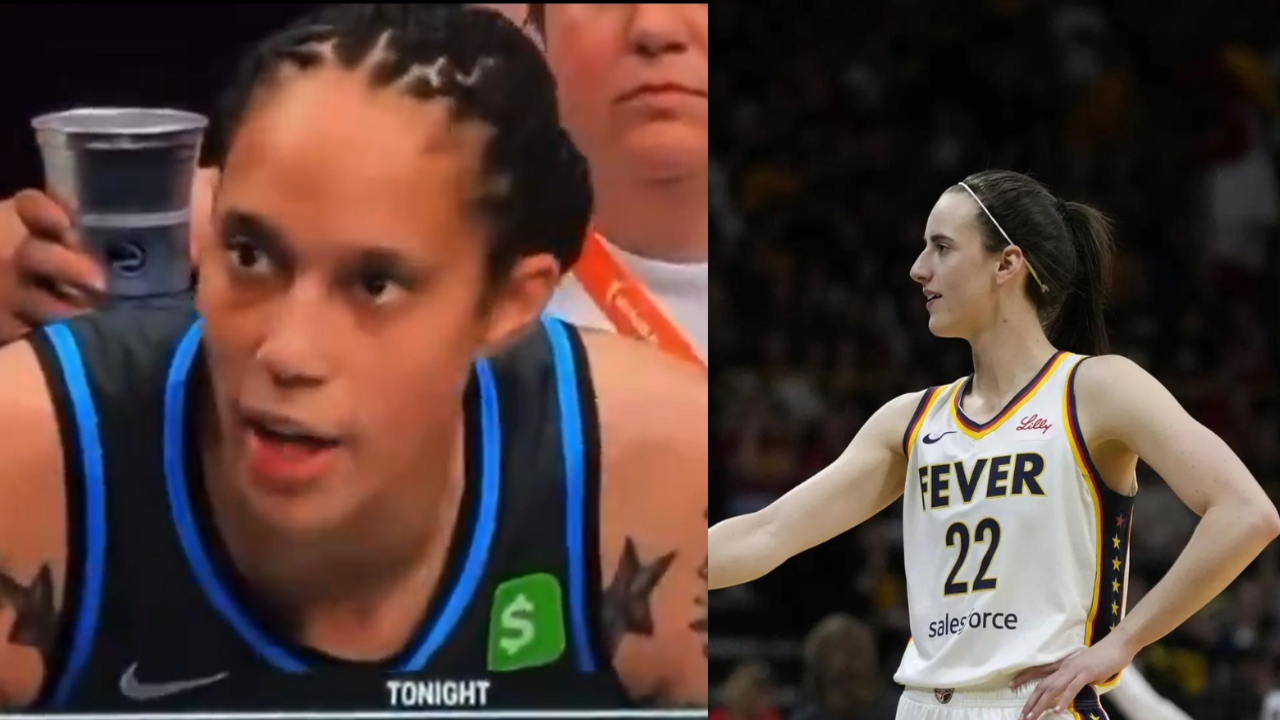
During a tense matchup between the Indiana Fever and the Atlanta Dream, Griner fouled out in the fourth quarter. As she left the court visibly frustrated, social media sleuths and lip-readers quickly zeroed in on what appeared to be a derogatory and racially charged comment aimed at Clark. Despite the growing online consensus that Griner said, “trash f***ing white girl,” neither the WNBA nor Griner’s team have issued any statements or clarifications.
Outrage was swift and widespread. Former NCAA swimmer and women’s sports advocate Riley Gaines posted the clip on social media, calling out the WNBA for its double standards. Gaines’ post went viral, striking a chord with fans who have been frustrated with what they perceive as a biased and inconsistent disciplinary system within the league. Her critique extended beyond the court, drawing attention to the 2022 prisoner swap that brought Griner back from Russia, implying that Griner’s return to the U.S. has not been met with the professionalism expected of a global ambassador for the sport.
The situation escalated further when it was revealed that Clark had suffered a left quad strain, keeping her out of five consecutive games. While the injury was officially attributed to a May 24th game against the New York Liberty, fans speculated about a possible connection to the physical and verbal targeting Clark has endured throughout her rookie season. This speculation intensified when the WNBA continued to investigate unverified claims made by Angel Reese about Fever fans while remaining silent on the Griner incident, despite video evidence going viral.
Griner’s actions have led to a deeply polarizing conversation. While some media outlets have defended her, claiming she used the phrase “whack call” rather than a racial slur, others have insisted the video clearly shows otherwise. The WNBA’s decision to deny media credentials to OutKick, the outlet that has aggressively pursued the story, only added fuel to the fire. Critics accuse the league of suppressing uncomfortable questions and selectively enforcing its “No Space for Hate” policy.

Meanwhile, the backlash has extended to the WNBA’s financial health. Clark’s absence has had a noticeable impact on ticket sales and TV ratings. In one instance, ticket prices for an Indiana Fever game plummeted from $41 to just $3 after it was announced she would not be playing. This stark drop illustrates just how integral Clark is to the league’s commercial success and public appeal.
Adding to the controversy was Griner’s celebratory social media post following a win over the Clark-less Fever, which many fans interpreted as tone-deaf and dismissive. The optics of celebrating while the league’s most popular player sat out due to injury only served to deepen the divide.
Mainstream media’s reluctance to address the issue head-on has not gone unnoticed. Despite ample opportunities, credentialed reporters have consistently avoided asking Griner directly about the alleged slur. The silence from both the league and the media has contributed to growing disillusionment among fans who believe Clark represents a transformative moment for women’s basketball—and deserves to be protected and respected accordingly.
The WNBA has historically struggled for mainstream recognition and profitability. Caitlin Clark’s arrival, along with her record-breaking performances and massive fan following, offered the league a golden opportunity to change that. But instead of capitalizing on her momentum, the league appears to be stumbling, hamstrung by internal politics and inconsistent messaging.
Clark’s popularity is undeniable. She’s fourth in the MVP race in her rookie season, drawing millions of viewers and filling arenas in ways the league has never experienced before. Her modest demeanor, unmatched talent, and ability to attract new audiences make her an ideal ambassador for women’s basketball.
The Griner incident, and the WNBA’s response—or lack thereof—has highlighted a troubling double standard. If the roles were reversed, if Clark had made a similar remark toward a Black player, there is little doubt the league would have taken swift disciplinary action. The fact that Griner continues to play without consequence has many questioning the league’s commitment to its own values.
This isn’t just about one comment or one player. It’s about the future of a league that is finally seeing the spotlight but seems unable to handle the scrutiny that comes with it. The WNBA must decide if it wants to be a serious, professional sports league held to consistent standards—or a politically charged entity where accountability is selectively applied.
The league has an opportunity to rebuild trust and affirm its commitment to fair play and integrity. But that requires transparency, honest communication, and a willingness to confront uncomfortable truths. Until then, the controversy will continue to fester, undermining everything the WNBA has worked so hard to build.
The time for silence is over. The league owes its fans—and its players—the clarity and consistency they deserve.
